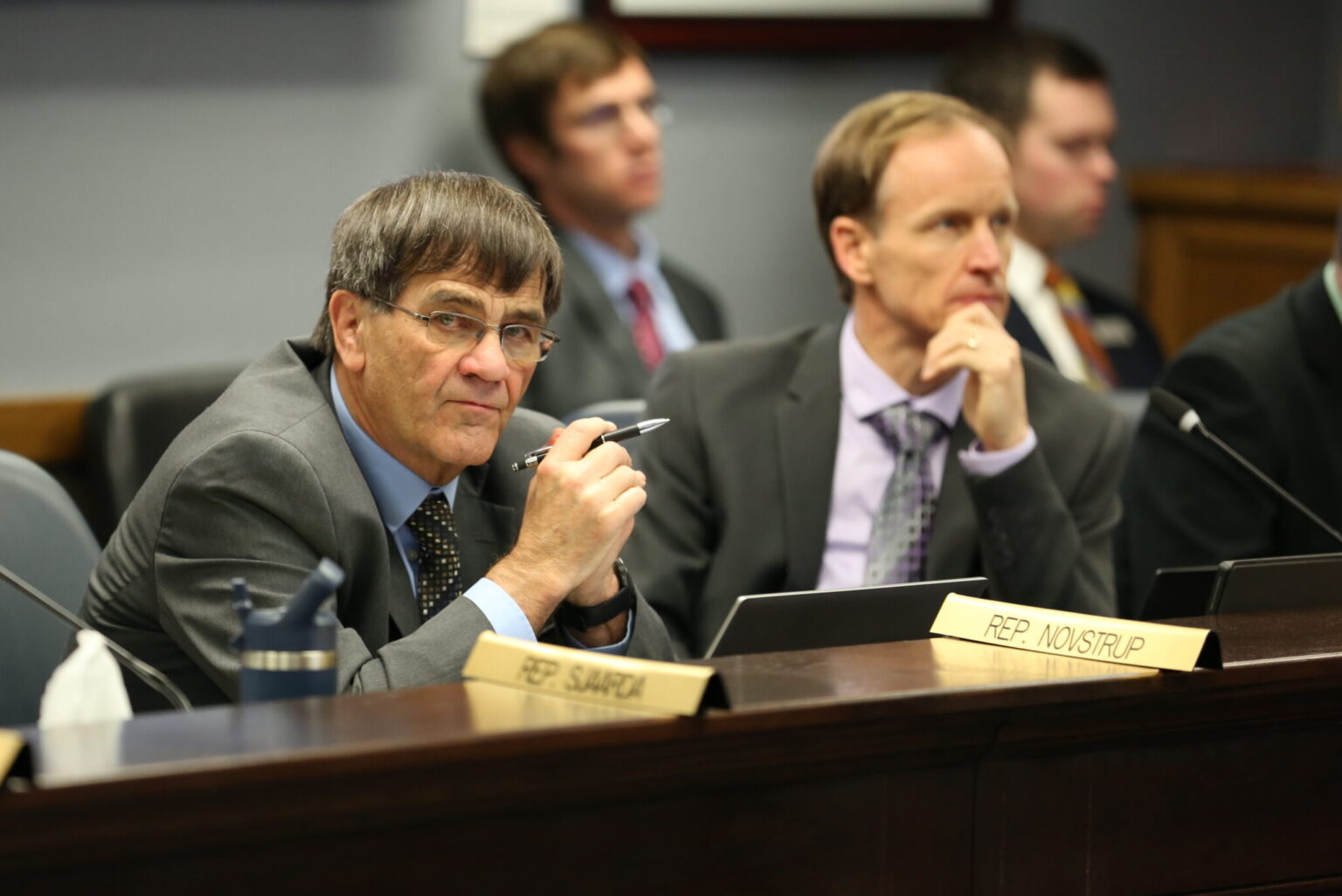
Makenzie Huber/South Dakota Searchlight
A bill requiring public school districts in South Dakota to set policies allowing chaplains to serve within school buildings failed in the South Dakota House of Representatives in a 49-18 vote.
Rep. Al Novstrup, R-Aberdeen, introduced House Bill 1054, saying that it would formalize religious outreach efforts in schools and help students to develop relationships with spiritual mentors. Chaplains would serve in schools based on school board policies, including qualification requirements and parental consent.
Lawmakers opposed to the bill shared how faith leaders are already involved in many South Dakota schools through clubs and outreach efforts, and worried that a mandated policy would confuse practices in place. Brookings Republican Rep. Mellissa Heermann said she worried about variation in minimum qualifications and teaching standards by school district.
Religion is a personal decision that should be left to a child and their family, said Sioux Falls Democratic Rep. Erin Healy.
The bill “doesn’t strengthen religious freedom, it threatens it,” she said. It could potentially alienate a child if a school chaplain instructs different religious values than the student and their family believe.
“Parents send their children to public school to learn to read, to learn to write, and learn to have critical thinking skills,” Healy said. “They don’t send them to public school to have religious instruction imposed on them by government-mandated chaplains.”
Proponents of the legislation argued it was written loosely enough to allow for local control and account for concerns raised during debate.
Lawmakers this session are also weighing Senate Bill 51, which would mandate that public schools display the Ten Commandments in every classroom. That measure passed the Senate and heads to the House of Representatives.
